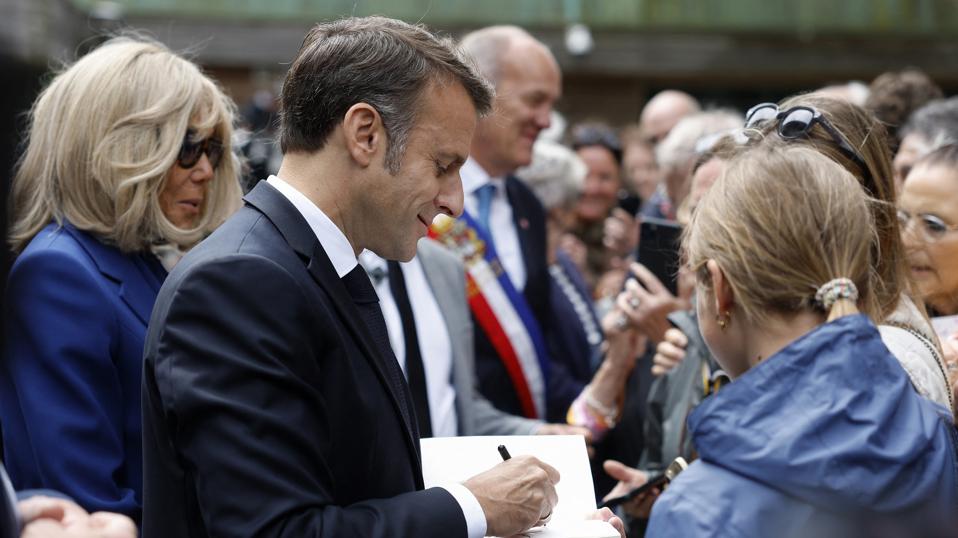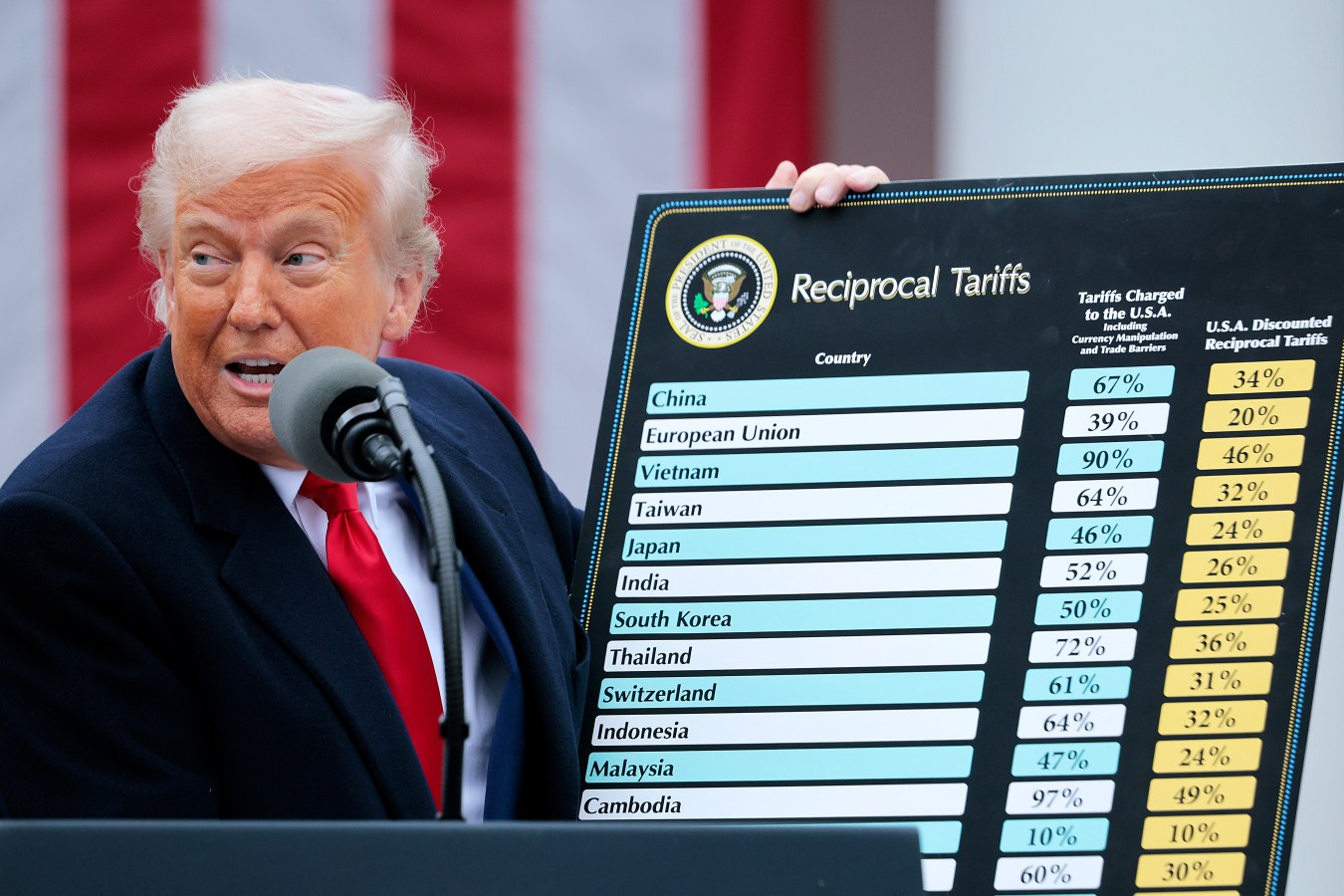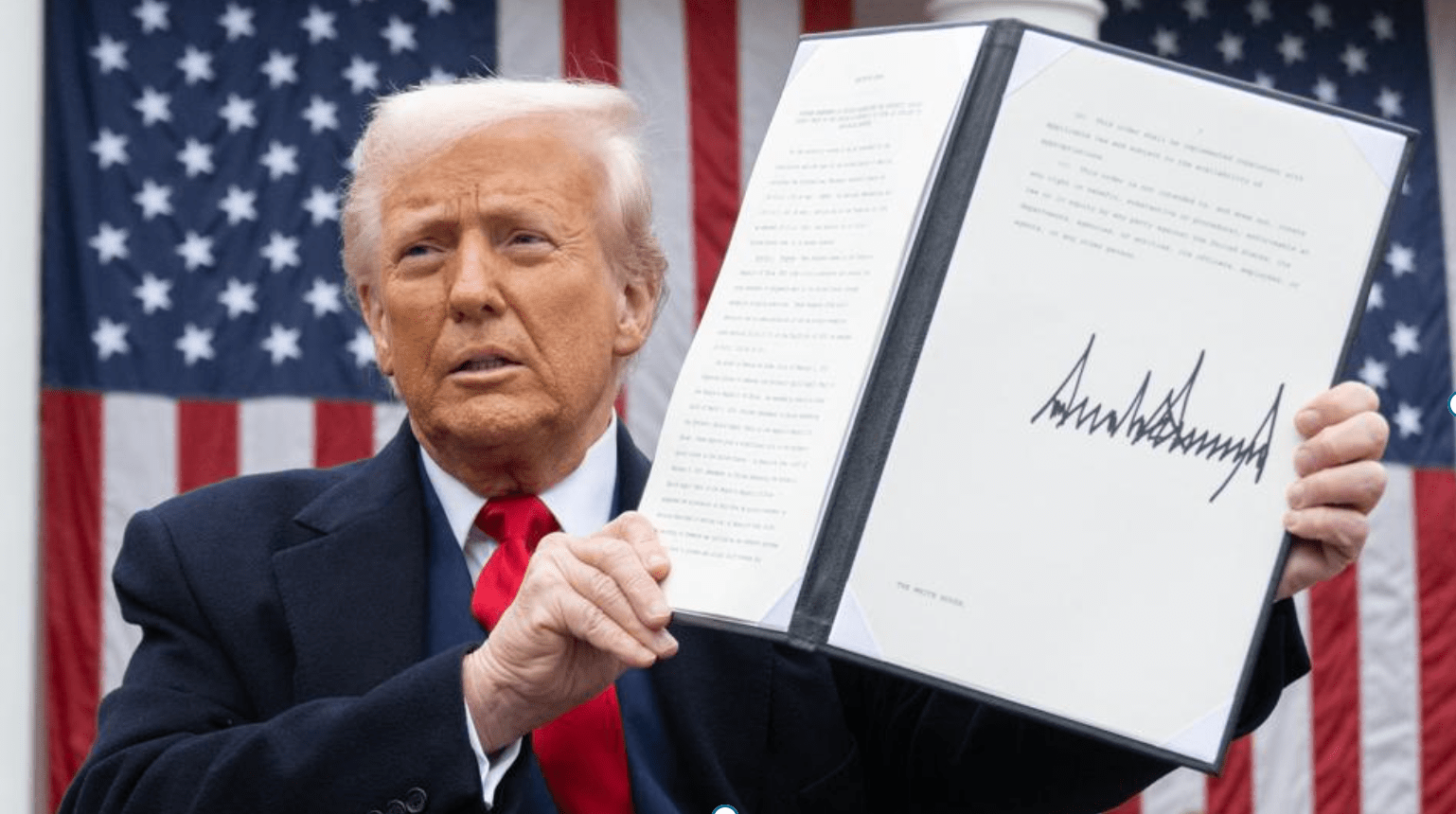Leftist parties in France are expected to come out the surprise victors on the final day of France’s high-stakes parliamentary election after a surge in support for the far-right last month sent opposing parties scrambling to prevent the National Rally from winning an absolute majority.

France’s President Emmanuel Macron signs an autograph as he greets supporters after casting his vote in the second round of France’s legislative election at a polling station in Le Touquet, northern France on July 7, 2024.
POOL/AFP via Getty Images
Key Takeaways
- The new Popular Front leftist coalition (which includes socialist and communist parties) is expected to win between 170 and 215 seats in the National Assembly, Bloomberg reported Sunday—the most of three major groups involved in the election—while the centrist Together for the Republic coalition (including President Emmanuel Macron’s Renaissance Party) is likely to win 150 to 182.
- The National Rally, a far-right nationalist party with historical ties to racism, antisemitism and Russia, is expected to come in third with somewhere between 110 and 158 seats, a dramatic change from the end of first-day voting last week that positioned the party to win the most seats.
- After the National Rally came out on top in the June 30 elections, opposing parties joined together to try to block the National Rally advance and withdrew candidates in some constituencies in an effort to not split the anti-far-right vote.
- Voter participation in the election hit almost 60% as of mid-day Sunday, according to the Interior Ministry, the highest in a French election in decades and much higher than the 38% that voted in the 2022 legislative election.
What If No Party Wins An Absolute Majority In France’s Elections?
Early projections show that no party will have a majority in the National Assembly, resulting in a hung parliament. The split in power could force Macron to pursue coalition negotiations with other groups or name a technocratic government, in which leaders are not chosen for their political affiliations.
Who Will Be The Next Prime Minister Of France?
This is unclear as of Monday morning. If National Rally had won the parliamentary majority, Macron would likely have been forced to name 28-year-old party leader Jordan Bardella as prime minister, resulting in a split-party government known in France as “cohabitation.”
It would have been the first time power was shared between parties since the early 2000s and likely led to gridlock in government.
But Bardella had already said he was not interested in the job if his party did not win the absolute majority, which leaves uncertainty as to who may take the prime minister position.
Even without a majority, Macron’s choice for the position will still need to reflect the make-up of the new Assembly.
When Will We Have Results Of Elections In France?
The elections will end at 8 p.m. local time (2 p.m. EST). Initial polling projections are expected soon after, and official results will likely be available late Sunday and early Monday.
Surprising Fact
The captain of France’s national soccer team, Kylian Mbappé, had urged voters to cast ballots against politically extreme candidates and called the results of the first round of voting “catastrophic.”
Key Background
A National Assembly election was not due in France for another three years, but Macron called the snap election after his party fell in a June 9 European election to the National Rally party. After the loss, Macron called on the country to build a new coalition of those “who do not recognise themselves in the extremist fever.”
His aim was to restore power to the center, but the elections have instead likely handed more power to the National Rally, as well as the far-left. Macron has said he will not step down as president before his term expires in 2027 no matter the results, which could lead to lame duck years of governmental gridlock due to the splitting of power.
The popularity of Macron and his party has been falling for years and his party failed to secure an absolute majority in the 2022 National Assembly elections, which has hamstrung his ability to govern, much like when Congress and the White House are controlled by different parties in the United States.
This article was first published on forbes.com and all figures are in USD.
Are you – or is someone you know -creating the next Afterpay or Canva? Nominations are open for Forbes Australia’s first 30 under 30 list. Entries close midnight, July 31, 2024.
Look back on the week that was with hand-picked articles from Australia and around the world. Sign up to the Forbes Australia newsletter here or become a member here.


